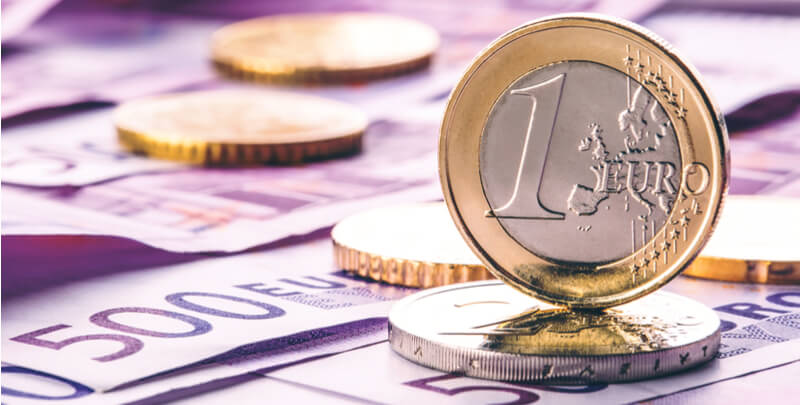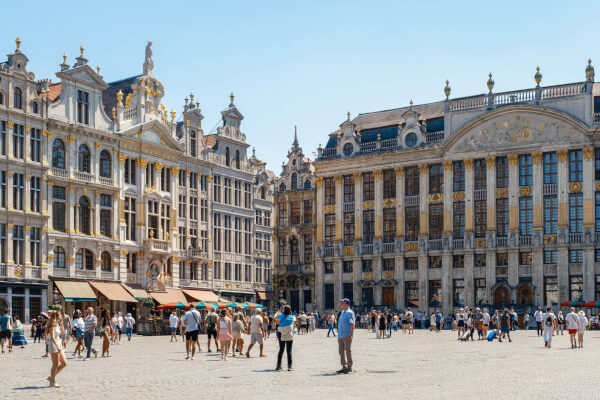Is tap water in Belgium safe to drink? A traveller's guide
Planning a trip to Belgium? Discover if tap water is safe to drink for travellers. This is your guide on Belgium's water quality.

Known as the land of lavish chocolate desserts and the heart of the European Union, Belgium is a pretty sweet place to visit or live. It has it’s quirks, too, like holding the world record for being the democracy to last the longest time (589 days to be exact) without an elected government. That’s thanks to it’s two regions, the French-speaking Wallonia and the Dutch-speaking Flanders, struggling to come to terms on policy issues in 2010-2011.
To this day, the two regions, and Belgium’s capital of Brussels, have their own distinct cultures and viewpoints. Wherever you are, our guide will give you a breakdown of Belgium’s currency, where to locate money, how to spend it, and an overview of the many domestic and international banks.
A founding member of the European Union, Belgium was one of the first countries to adopt the Euro on January 1, 1999. Now it’s one of 19 countries within the Eurozone.
| Characteristics of the Euro | |
|---|---|
| Names and nicknames | Euro |
| Symbols and abbreviations | Written as € or EUR is the international 3-letter code on the currency exchange market |
| 1 EUR | One euro is divided into 100 cents, similar to the dollar. |
| EUR coins | Euro coins are available in denominations ranging from 1 cent to 2 euros. In Belgium, it’s common to pay for smaller purchases with one and two euro coins. |
| EUR banknotes | Euro bills range from €5 to €500. They’re printed on pure cotton fiber, improving their durability and giving them a distinctive feel. |
Thinking of using your currency from back home in Belgium? Don’t count on it.
It’s not common to pay for goods and services there with any currency except euros. However, international credit and debit cards are widely accepted at retailers, especially in larger cities such as Brussels and Antwerp. ATMs are also easy to find, especially in large and medium sized cities, and foreign debit cards can be used to withdraw cash. You can also exchange your cash at several locations- but we’ll get into detail on that later.
Foreign visitors to Belgium can exchange their currency both at banks and currency exchanges.
You should be able to find a few spots to exchange your cash from home without losing too much of it in the process. Here are some of the best spots to cost-effectively swap your cash.
Exchange services will often try to woo customers through using their favorite phrases: “0 fees” or “No commission”. However, this is nearly always false advertising. If you do a quick search on Google or use an online currency converter, you’ll find that your money is worth far more than they’ll offer you.
Banks and large global finance markets are trading cash all day long, and these trades set the real mid-market rate, which you can easily find on Google. It represents what your money is actually worth, although banks and transfer exchange services will often invent their own, much poorer exchange rate for you and then pocket the difference. Moral of the story: advertised rates may seem like a good deal, but make sure to shop around and check the rates on Google before committing to any exchanges.
Sometimes it makes the most sense to convert your cash from your home bank before you go abroad. Other times, however, you can snag a better deal abroad. Through websites such as finder.com, you can compare and contrast the exchange rate of several services at home and in your destination country.
Airports and hotels take advantage of having a monopoly over the market - they increase their prices due to a shortage of alternative suppliers. Exchange only what you’ll need at these locations, and then head to a proper currency exchange where you should get a more reasonable rate. Your wallet will thank you later.
In Belgium, merchants will sometimes refuse to accept any sort of damaged banknotes to exchange. Make sure those bills in your wallet are crisp and clean - and not damaged or torn - to ensure that they’ll be accepted.
With a Wise Borderless account, you can hold your money in dozens of different currencies and make hassle-free euro transfers to any Belgian bank account whenever you need to. Not only that, but if you use Wise your money will be converted from one currency to another at the same rate you find on Google - saving you tons of cash in the long run.
Not traveling to Belgium till a later date? Not a problem. From late 2017, there’ll be debit cards to go along with your Borderless account which can be used internationally.
You can buy traveller’s cheques (or ‘checks’ in the US) at most banks, which will smack you with an additional charge of 1-4%. Despite the higher cost, if you still want to purchase travellers cheques, be sure to opt for euro-specific cheques. That will make them more likely to be accepted at local businesses, free of the hassle of high conversion fees. Nowadays, however, it’s better to simply use cash or a debit credit card if you can, which are far more likely to be accepted in Belgium.
Major providers such as American Express, Mastercard, Visa, Cirrus, and Maestro are widely accepted at major restaurants, stores and hotels in Belgium. However, not all smaller stores and grocery shops will accept your card. Be sure to always have a bit of cash on hand so you don’t end up stranded.
The good news is that ATMs in Belgium rarely charge on-site withdrawal fees like you find in many other countries.
But there’s a flip side: if you make purchases with your card, or withdraw money from an ATM, you might run into a service dubbed Dynamic Currency Conversion (DCC).This basically means that the card merchant or ATM will offer for you to be charged in your home currency rather than euros.
But some things aren't as good as they seem. Yes, it’s much more convenient and comfortable to do a transaction in a currency you’re more familiar with. However, tempting as it might seem, keep in mind that you’ll face fees sometimes up to four or more percent, just for the luxury of viewing those numbers in your home currency.
With DCC, you’re allowing the local ATM to give you whatever exchange rate they feel like - which is most likely not going to be in your favor. You’re better off doing transactions in the local currency, euro, where your home bank will give you a fairer exchange rate, saving you a lot in the long run.
ATMS are very common in Belgium, particularly in retail centers of larger cities such as Brussels and Antwerp. As long as you have a 4-digit pin number for your ATM card, you can typically withdraw from foreign bank accounts.
You’ll still want to make sure to watch out for offers to be charged in your home currency rather than the local one. If you see the option, always select to be charged in euros to avoid steeper fees via poor exchange rates.
If you’re on the lookout for an ATM near you, the website Bankautomat Finder allows you to easily locate ATMs throughout the country.
There are a good 80+ banks operating in Belgium, many with international branches. So if you aren’t sure if your home bank has a branch, it’s worth investigating if they may have a partner in Belgium, which could help reduce overall ATM fees if you find there’s one.
Hosting the headquarters of the European Union, it comes as no surprise that Belgium boasts a broad selection of international banks. Among the larger ones are:
In short, finding - and spending - money in Belgium is a pretty straightforward process, as long as you know where to look.
This publication is provided for general information purposes only and is not intended to cover every aspect of the topics with which it deals. It is not intended to amount to advice on which you should rely. You must obtain professional or specialist advice before taking, or refraining from, any action on the basis of the content in this publication. The information in this publication does not constitute legal, tax or other professional advice from TransferWise Limited or its affiliates. Prior results do not guarantee a similar outcome. We make no representations, warranties or guarantees, whether express or implied, that the content in the publication is accurate, complete or up to date.
*Please see terms of use and product availability for your region or visit Wise fees and pricing for the most up to date pricing and fee information.
This publication is provided for general information purposes and does not constitute legal, tax or other professional advice from Wise Payments Limited or its subsidiaries and its affiliates, and it is not intended as a substitute for obtaining advice from a financial advisor or any other professional.
We make no representations, warranties or guarantees, whether expressed or implied, that the content in the publication is accurate, complete or up to date.

Planning a trip to Belgium? Discover if tap water is safe to drink for travellers. This is your guide on Belgium's water quality.